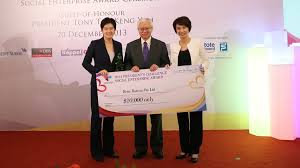Government Grants
Business Grants
Home Owner Programs
Federal Programs
About Us
Developing PBPK Model-Based Mechanistic IVIVCs for Long Acting Injectable Suspensions and Implants (U01) Clinical Trial Optional
The objective of this research proposal is to develop physiologically based pharmacokinetic (PBPK) model-based mechanistic in vitro in vivo correlations (IVIVCs) for two major types of long acting injectables (LAIs) such as crystalline suspensions and polymer-based implants by considering their distinct
characteristics.
The goal of the project is to develop a bottom-up mechanistic PBPK model for these two LAI categories by accounting for the influence of critical formulation attributes of each LAI drug product type to predict its in vivo release mechanism.
The model formulation parameters and relevant physiology should be informed with suitable in vitro and in vivo experiments.
A suitable preclinical animal model can be used to validate the PBPK model based IVIVCs for both LAI suspensions and polymer based implants.
The use of PBPK modelling provides a unique opportunity to understand how the physicochemical properties of drug molecules/polymer, implant specific properties, critical formulation attributes, and physiology, among other things, influence the in vivo release mechanisms of LAI drug products and their disposition characteristics.
Moreover, once developed, a mechanistic PBPK model can help to define the 'safe space' for critical formulation attributes relevant to the reference listed drug (RLD) product, explain sources of PK variability and extrapolate predictions to human subjects by leveraging animal model data and by accounting for species-specific physiological differences.
The goal of the project is to develop a bottom-up mechanistic PBPK model for these two LAI categories by accounting for the influence of critical formulation attributes of each LAI drug product type to predict its in vivo release mechanism.
The model formulation parameters and relevant physiology should be informed with suitable in vitro and in vivo experiments.
A suitable preclinical animal model can be used to validate the PBPK model based IVIVCs for both LAI suspensions and polymer based implants.
The use of PBPK modelling provides a unique opportunity to understand how the physicochemical properties of drug molecules/polymer, implant specific properties, critical formulation attributes, and physiology, among other things, influence the in vivo release mechanisms of LAI drug products and their disposition characteristics.
Moreover, once developed, a mechanistic PBPK model can help to define the 'safe space' for critical formulation attributes relevant to the reference listed drug (RLD) product, explain sources of PK variability and extrapolate predictions to human subjects by leveraging animal model data and by accounting for species-specific physiological differences.
Agency: Department of Health and Human Services
Office: Food and Drug Administration
Estimated Funding: $300,000
Office: Food and Drug Administration
Estimated Funding: $300,000
Who's Eligible
Obtain Full Opportunity Text:
NSF Publication 24-526
Additional Information of Eligibility:
Eligible Applicants: Eligibility is limited to the alumni of U. S. government-sponsored exchange programs, who are citizens or residents of Georgia.
(https://alumni.state.gov/list-exchange-programs) Other Eligibility Requirements: Applicants are only allowed to submit a maximum of two proposal per individual.
If more than two proposals is submitted from an individual, all proposals from that individual will be considered ineligible for funding.
If a group of alumni cooperate to submit a joint project, the requested amount cannot exceed $20,000.
The submitting applicant should be an individual alumnus/alumna or the group of alumni, but the grant can be awarded to the organization partnering in the project.
If the organization will be the awardee, they need to present active SAM.gov registration prior to awarding process.
SAM.gov registration for applicant individuals is not required.
Full Opportunity Web Address:
http://www.nsf.gov/publications/pub_summ.jsp?ods_key=nsf24526
Contact:
Agency Email Description:
terrin.brown@fda.hhs.gov
Agency Email:
Date Posted:
2024-01-15
Application Due Date:
Archive Date:
2024-04-30
Social Entrepreneurship
Spotlight
3 Social Enterprises Earn Honors at Social Enterprise Award

Three social enterprises were recognized at the 2013 President’s Challenge Social Enterprise Award for their major contributions to society. SATA CommHealth and Bliss Restaurant landed Social Enterprise of the Year titles, while Bettr Barista Coffee Academy bagged the award for Social Enterprise Start-up of the Year.

